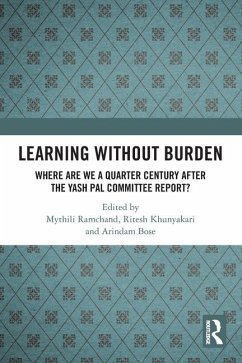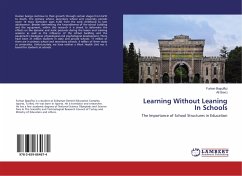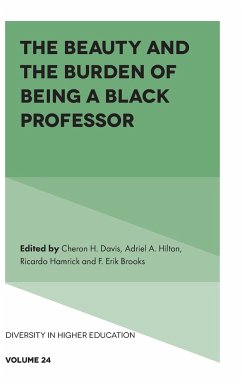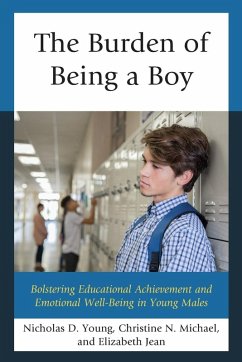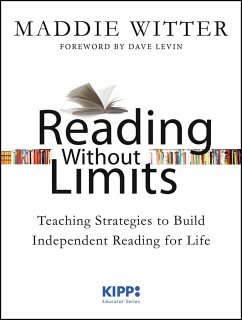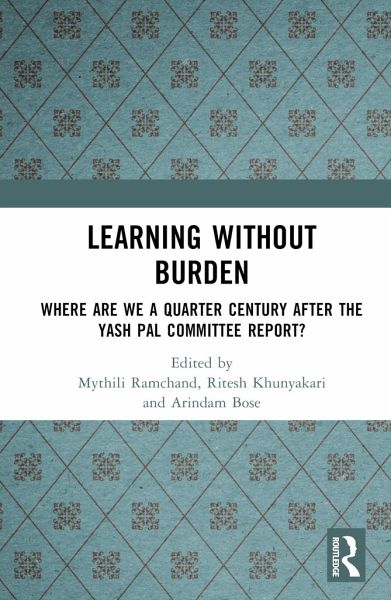
Learning without Burden
Where are We a Quarter Century after the Yash Pal Committee Report
Herausgeber: Ramchand, Mythili; Bose, Arindam; Khunyakari, Ritesh
Versandkostenfrei!
Versandfertig in 1-2 Wochen
168,99 €
inkl. MwSt.
Weitere Ausgaben:

PAYBACK Punkte
84 °P sammeln!
This book looks at education reforms, planning and policy through an exploration of the Yash Pal Committee report (1993) in India, which made recommendations to improve the quality of learning while reducing cognitive burden on students. It analyses the wide-ranging impact the report had on curriculum, pedagogy, teacher education reforms and the national policy on education. The book examines the legacy of the report, tracing the various deliberations and critical engagements with issues around literacy, language and mathematics learning, curriculum reforms and classroom practices, assessment ...
This book looks at education reforms, planning and policy through an exploration of the Yash Pal Committee report (1993) in India, which made recommendations to improve the quality of learning while reducing cognitive burden on students. It analyses the wide-ranging impact the report had on curriculum, pedagogy, teacher education reforms and the national policy on education. The book examines the legacy of the report, tracing the various deliberations and critical engagements with issues around literacy, language and mathematics learning, curriculum reforms and classroom practices, assessment and evaluation. It reviews contemporary developments in research on learning in diverse disciplines and languages through the lens of the recommendations made by the Learning without Burden report while engaging with challenges and systemic issues which limit inclusivity and access to quality education. Drawing on extensive research and first-hand academic and teaching experience, this book will attract attention and interest of students and researchers of educational policy and analysis, linguistics, sociology and South Asian studies. It will also be of interest to policy makers, think tanks and civil society organisations.





